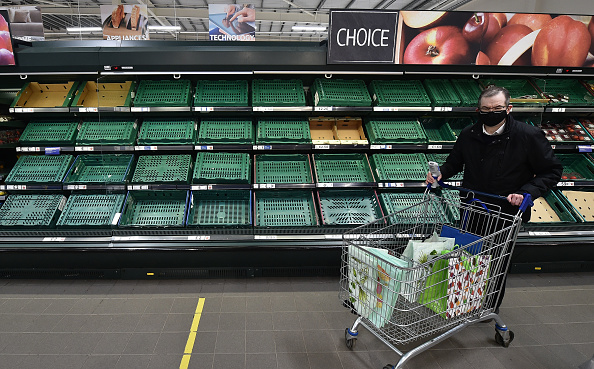‘Perfect storm’ of headwinds crimps UK optimism

A “perfect storm” of headwinds gripping households with the tightest financial squeeze in a generation is eroding Brits’ optimism, reveals a closely watched survey published today.
Concern about the impact soaring inflation will have on household finances drove UK consumer confidence to its lowest level in over a year, plummeting to minus 26 points this month, according to research firm GfK.
A combination of prices rising at the quickest pace in nearly 30 years, a looming 1.25 percentage point national insurance hike and a 54 per cent uplift to the energy price cap has knocked consumer confidence hard.
“Fear about the impact of price rises from food to fuel and utilities, increased taxation and interest rate hikes has created a perfect storm of worries that has shaken consumer confidence,” Joe Staton, client strategy director at GfK, said.
Russian President Vladimir Putin’s decision to launch a full-blown incursion of Ukraine is likely to deal a further blow to consumer confidence.
Inflation climbed to near a three decade high of 5.5 per cent last month, causing experts to warn of the historic drop in household living standards this year.
Calculations by the economic think tank the Resolution Foundation estimates real household disposable income could shrink at the worst rate since the late 1940s this year.
Analysts at Goldman Sachs think inflation will top eight per cent in April.
These gloomy predictions have prompted economists to slash their forecasts for UK growth this year due to an expected drop in consumer spending as Brits tighten their belts.
“Slowing consumer spend slows the wheels of the UK economy so this is unwelcome news,” Staton added.
Separate data published yesterday revealed prices charged by retailers are set to climb over the coming months.
A net 81 per cent of high street businesses are intending to hike prices, according to the Confederation of British Industry.
“Retail sales likely won’t gather much momentum this year. Households will struggle as their real disposable incomes fall by around two per cent this year,” Gabriella Dickens, senior UK economist at Pantheon Macroeconomics, said.